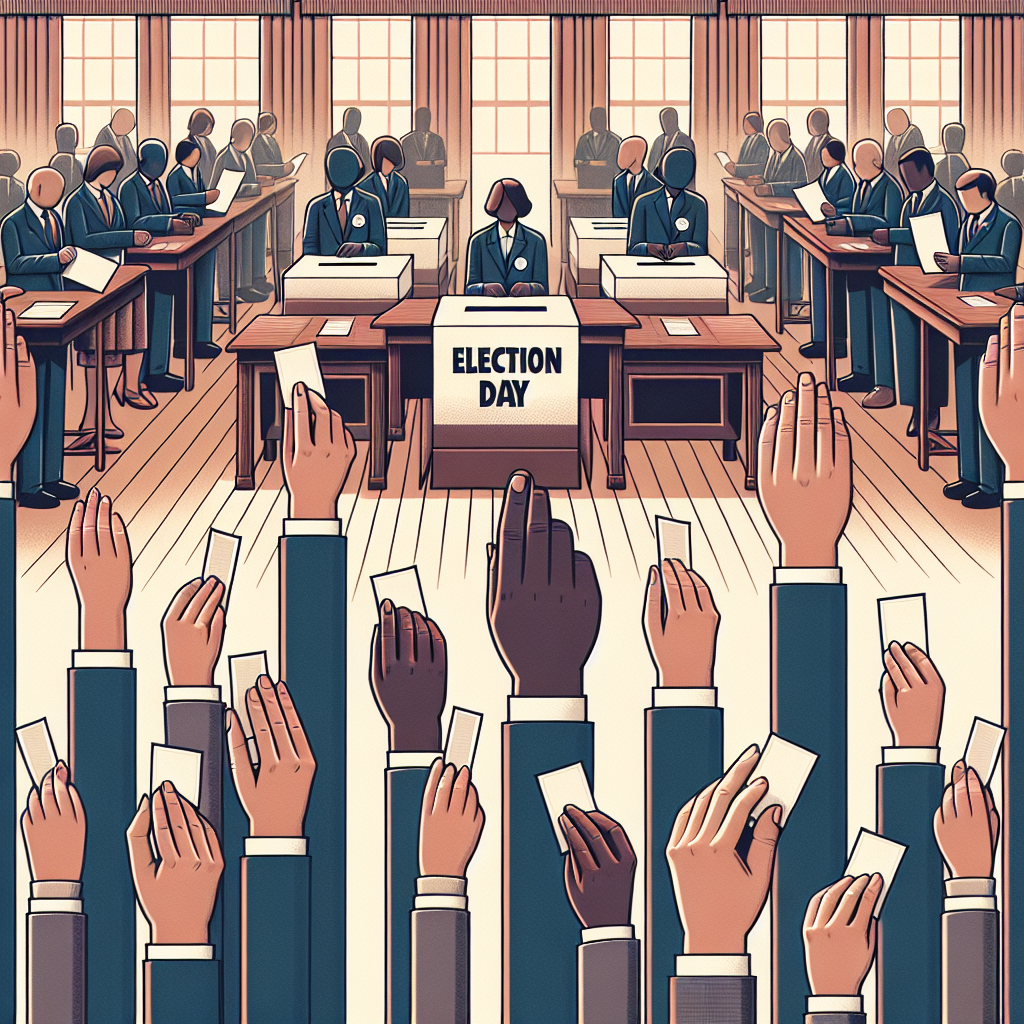Election Day is a pivotal moment in the democratic process, marking the day when citizens cast their votes for various offices and measures. This day is typically set by law and varies by country, but in the United States, it occurs on the first Tuesday after the first Monday in November. Understanding the implications of this day requires a closer examination of its historical context, legal definitions, and its significance in the electoral process.
Historical Context of Election Day
The establishment of Election Day in the United States dates back to the 19th century. Initially, elections were held on different days across states, leading to confusion and logistical challenges. In 1845, Congress standardized the election date to the first Tuesday after the first Monday in November, primarily to accommodate farmers who needed time to travel to polling places after the harvest season. This decision reflects a compromise that aimed to ensure broader participation in the electoral process.
Over the years, the definition and significance of Election Day have evolved. While it was originally designed to facilitate voting in agrarian societies, modern advancements in technology and communication have transformed the way elections are conducted. Despite these changes, the essence of Election Day remains rooted in the democratic principle of allowing citizens to express their political preferences.
Legal Definitions and Implications
The legal framework surrounding Election Day is crucial for understanding its implications on voting rights and ballot counting. According to federal law, Election Day is the deadline for voters to cast their ballots; however, the interpretation of what constitutes this deadline can vary. For example, in the case of legal risks of social media, the timing and procedures regarding absentee ballots have come under scrutiny, particularly in states like Mississippi.
In recent legal debates, such as the case of Watson v. Republican National Committee, the interpretation of Election Day has been challenged. The U.S. Court of Appeals for the 5th Circuit ruled that all ballots must be both cast and received by the end of Election Day, leading to significant implications for states that allow ballots postmarked by Election Day to be counted if they arrive within a certain timeframe. This ruling has raised concerns among various stakeholders, including voters and state officials, about the potential disruption of established voting practices.
State Autonomy and Election Day
Election Day also raises questions about the balance of power between federal and state authorities. Many states have implemented their own laws regarding absentee voting and ballot counting, leading to a patchwork of regulations across the country. The ruling in the Watson case has implications for state autonomy, as it challenges the ability of states to determine their voting procedures. Critics argue that such federal overreach could undermine the ability of states to adapt their electoral processes to meet the needs of their constituents.
As the legal landscape surrounding Election Day continues to evolve, the importance of understanding its meaning and implications grows. The discussions surrounding this day not only affect the mechanics of voting but also touch upon broader issues of democracy and representation. The ongoing debate highlights the need for clarity in the legal definitions associated with Election Day, ensuring that the rights of voters are protected while maintaining the integrity of the electoral process.

| Aspect | Description |
|---|---|
| Historical Establishment | Standardized in 1845 to enhance voter participation. |
| Legal Interpretation | Varies by state; impacts absentee voting procedures. |
| State vs. Federal Authority | Ongoing debates about state autonomy in election laws. |
The term “election day” holds significant importance in the context of democratic processes, as it designates the official day on which voters cast their ballots for various offices, including federal, state, and local positions. This day is typically set by law and varies from one country to another. In the United States, election day is established as the first Tuesday after the first Monday in November. However, the interpretation of what constitutes election day can lead to legal disputes, particularly concerning absentee ballots and their acceptance timelines.
Legal Interpretations of Election Day
The ongoing case of Watson v. Republican National Committee exemplifies the complexities surrounding the definition of election day. In this case, Mississippi’s Secretary of State, Michael Watson, challenges a ruling from the U.S. Court of Appeals for the 5th Circuit. The court determined that Mississippi’s law, which permits absentee ballots postmarked by election day to be counted if they arrive within five business days, was invalid under federal law. The court’s interpretation emphasizes that ballots must be both cast and received by the Tuesday following the first Monday in November, which raises questions about state autonomy in election administration.
Watson argues that federal statutes, specifically 2 U.S.C. §§ 1 and 7 and 3 U.S.C. § 1, only stipulate when voters must cast their votes, not when election officials must receive those votes. He contends that Mississippi’s law simply allows for a grace period for ballots cast by election day to be accepted slightly late. This interpretation is crucial as it could potentially affect similar laws in approximately 30 states, leading to chaos in the electoral process ahead of the 2026 elections.
Implications for State Autonomy
The dissenting opinion from five judges in the 5th Circuit highlighted the exceptional importance of this issue, indicating that the court’s decision could undermine state control over election laws. The case has attracted support from various groups, including voters who intervened to back the law and a coalition of 19 states along with the District of Columbia. These entities argue that the 5th Circuit’s ruling threatens the longstanding principle of state autonomy in managing elections, which has been a foundational aspect of the U.S. electoral system.
As the Supreme Court prepares to hear this case, the implications of its ruling could reverberate across the nation. A decision in favor of Watson could reinforce the ability of states to implement their own election laws, including provisions that allow for late-arriving ballots. Conversely, an affirmation of the 5th Circuit’s ruling could set a precedent that restricts state practices and enforces a more uniform federal standard regarding election day and ballot acceptance.

Broader Context of Election Day Laws
Understanding the meaning of election day extends beyond just the date itself; it encompasses the laws and regulations that govern the electoral process. The evolution of these laws reflects changes in societal attitudes towards voting and the importance of accessibility. For example, the acceptance of absentee ballots has become increasingly significant, especially in light of recent events that have prompted a reevaluation of voting accessibility. The impact of employment laws on voting participation and the consequences of privacy laws also play a role in shaping how states approach election day regulations.
As legal challenges surrounding election day continue to arise, it is essential to monitor how these interpretations affect voters and the electoral landscape. The discussion surrounding what constitutes election day is not merely academic; it has real-world implications for millions of voters who rely on the integrity and accessibility of the electoral process. The outcome of cases like Watson could redefine the relationship between federal and state election laws, influencing how elections are conducted in the future.
Conclusion on the Meaning of Election Day
In conclusion, the meaning of election day is a multifaceted concept that embodies both legal definitions and practical implications for voters. As the Supreme Court deliberates on cases like Watson, the outcome will likely have lasting effects on how elections are conducted in the United States. The ongoing discourse highlights the critical balance between federal oversight and state autonomy, shaping the future of electoral participation in a democratic society. The challenges surrounding election day underscore the need for clarity in election laws, ensuring that all voters can exercise their rights effectively.
The term “election day” is often used in political discourse to denote a specific date when voters are called to cast their ballots in various elections, including federal, state, and local contests. This day is crucial in the electoral process, as it marks the culmination of campaigning efforts and the moment when citizens exercise their democratic rights. However, the interpretation of what constitutes “election day” can have significant implications for electoral laws and practices, particularly regarding the counting of ballots.
Legal Interpretations of Election Day
The legal definition of “election day” has been a subject of debate, especially in light of recent cases brought before the courts. One notable case is Watson v. Republican National Committee, which addresses the interpretation of federal statutes concerning the timing of ballot submissions and their acceptance. In this case, Mississippi Secretary of State Michael Watson contends that the law allows for ballots that are postmarked by election day to be counted if they arrive within a specified grace period. This interpretation is critical because it affects the voting rights of many citizens who may face delays in ballot delivery.

The ruling from the U.S. Court of Appeals for the 5th Circuit, which struck down Mississippi’s law, emphasized a strict reading of federal regulations requiring that all ballots be both cast and received by the Tuesday following the first Monday in November. This interpretation has raised concerns about the potential disenfranchisement of voters, particularly in states that have similar grace-period provisions. Critics argue that such a rigid understanding of “election day” undermines state autonomy and the ability of local jurisdictions to implement voting practices that accommodate their constituents.
Implications for Voter Rights
The implications of defining “election day” are far-reaching, as they can influence voter turnout and the overall integrity of the electoral process. If states are unable to count valid ballots that arrive after election day, even if they are postmarked on time, it could lead to significant disenfranchisement. This is particularly concerning in the context of absentee voting, where voters may rely on postal services that are not always prompt.
Moreover, the debate surrounding the definition of “election day” is emblematic of broader discussions about voting rights and access to the electoral process. As various states grapple with laws that either expand or restrict voting access, the interpretation of key terms like “election day” can become a focal point in legal battles. For example, the Mississippi case exemplifies how the interpretation of federal law can intersect with state laws, potentially creating confusion and inconsistency across the nation.
Furthermore, the outcome of such cases can set precedents that influence future legislation. The legal ramifications of how “election day” is defined could lead to significant changes in how elections are conducted, especially as technology and voting methods continue to evolve. As states prepare for upcoming elections, understanding the implications of these legal interpretations will be vital for ensuring that all eligible voters can participate fully in the democratic process. For more insights on related legal issues, consider exploring the ramifications of ai in courtrooms.